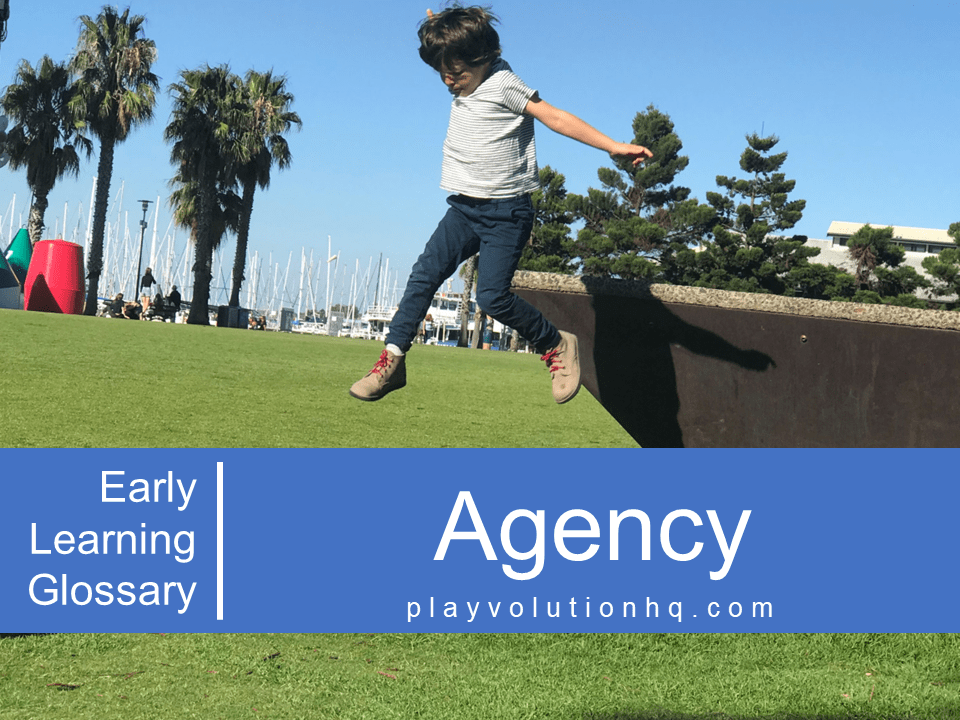
Agency refers to a child’s ability to act independently to influence their environment, making choices, setting goals, and taking action to achieve them. It is about allowing children power, control, and ownership over their play and exploration. When children have agency, they are active directors of their activity and learning.
The Early Learning Professionals Role
Early learning professionals play a crucial role in fostering agency in children. They create environments rich in exciting materials and opportunities for children to freely explore, experiment, and choose. Educators become facilitators, supporting children’s learning without dictating the outcome. They ask open-ended questions, encourage critical thinking, and provide support when needed.
Play: The Foundation For Agency
Play is not just a way for children to have fun; it is a vehicle for learning and an opportunity to practice exerting agency. Play-based learning environments allow children to make choices and decisions. Children can explore, experiment, and engage with the world on their terms when at play. Children decide what to play, the rules governing that play, which materials to utilize, how the activity evolves, and more.
Benefits Of Agency In Children
Children with agency benefit in the following ways:
- Self-Directed Learning–They are self-directed learners. They take ownership of their learning, choosing what interests them and setting their goals.
- Problem-Solving Skills–Children with agency are more likely to solve problems independently, building essential problem-solving and critical-thinking skills.
- Motivation And Engagement–Children are more motivated and engaged when they have agency. They are eager to explore and learn, driven by their curiosity.
- Confidence And Independence–Agency promotes confidence and independence as children learn to trust their decisions and capabilities.
- Social Skills–Children develop vital social skills with agency as they learn to cooperate, negotiate, and communicate with their peers.
Tips For Supporting Children In Developing Agency
Parents and caregivers can encourage the development of agency in the following ways:
- Offer More Choices–Allow children to make choices in their daily activities. For example, let them decide what to play, which socks to wear, whether they need a jacket, where to glue the googly eyes, or how they want to go down the slide. Such choices are empowering.
- Let Them Do It–Allowing children to do things themselves is also beneficial. It might be quicker to put their shoes on them, for example, but letting them do it themselves–even if it takes 4 times as long and the shoes end up on the wrong feet–shows that you trust them to act on their own.
- Support Mistakes–Speaking of shoes on the wrong feet–supporting kids in making mistakes is also beneficial. Making your own choices requires that, at some point, you learn to live with making less-than-ideal choices from time to time. This helps you make better choices in the future.
- Encourage Problem-Solving–When children encounter physical, intellectual, or social challenges, give them the space to try to solve the problem independently. Don’t rush in with what you consider to be the correct course of action. Instead, offer support and guidance only when needed, allowing them to build their problem-solving skills.
- Listen Actively–Actively listen to children’s thoughts and ideas. This shows them that their voices and opinions are valued, which, in turn, boosts their confidence and sense of agency.
- Create An Interesting Environment–Provide diverse materials and opportunities for exploration. Such environments spark curiosity and allow children to choose and chart their course of action.
- Support Real Play–In too many early learning settings, what passes as play is a play-like activity that fails to meet Peter Gray’s 5 Conditions of Play. Real play helps build agency. Play-like activity does not.

A Note About Behavior
It turns out that children with more agency are likely to have fewer behavior problems. We humans like to feel we have power and control over our lives. We tend to bristle when others dictate too much control over what we do when we do it, and how it is done.
Children with the freedom to make choices and take action feel more powerful, and their need to push back against adult authority dissipates. Kids who feel they are always under the thumb of someone with more power and control push back.
Wrap-Up
In early learning, agency empowers children to become confident, independent, and enthusiastic learners. Real play, with its focus on child-initiated activity, provides the ideal environment for fostering agency. Parents and early learning professionals should support kids in leading their learning.
Brought to you by Explorations Early Learning
Contribute content to Playvolution HQ
Thoughts On This Entry?
I’d love to hear your thoughts on improving this entry and suggestions for additional glossary additions in the comments below. You can also contact me with comments or concerns.

Post Author
Jeff Johnson is an early learning trainer, podcaster, and author who founded Explorations Early Learning, Playvolution HQ, and Play Haven.

Leave a Reply